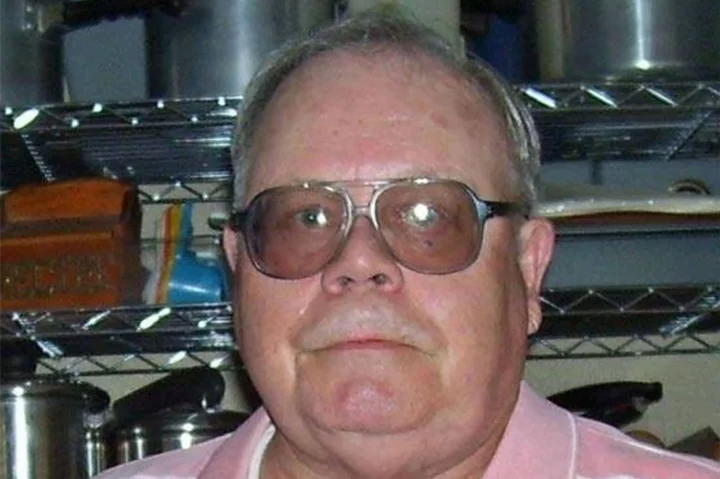
Family of Utah man shot dead by FBI after threats to Biden say he was ‘frustrated’ at ‘corruption’
The family of Craig Robertson, the man killed by the FBI as they were attempting to serve him a warrant at his home in Utah after he threatened the life of President Joe Biden, said he had been “distraught” by what “he, and many others in this nation, observed to be a corrupt and overreaching government”. In a statement on Facebook, Robertson’s family said they were “shocked and devastated by the senseless and tragic killing of our beloved father and brother”. The FBI raided the home of the Provo resident, who the federal complaint described as “approximately 70-75 years old,” after he had allegedly posted threats online against President Biden, his family, and Barack Obama. According to court documents, Robertson referenced a “presidential assassination” and also allegedly lodged threats against Manhattan District Attorney Alvin Bragg, Attorney General Merrick Garland and New York AG Letitia James. “The time is right for a presidential assassination or two. First Joe then Kamala!!!” officials claimed Robertson wrote in a September 2022 Facebook post, according to the filing. Robertson was killed hours before Mr Biden was scheduled to land in the state after he allegedly refused to comply with the FBI and pointed a weapon at the agents. “The FBI takes all shooting incidents involving our agents or task force members seriously. In accordance with FBI policy, the shooting incident is under review by the FBI’s inspection division,” the agency said in a statement. “Craig loved this country with all his heart. He saw it as a God-inspired and God-blessed land of liberty. He was understandably frustrated and distraught by the present and on-going erosions to our constitutionally protected freedoms and the rights of free citizens wrought by what he, and many others in this nation, observed to be a corrupt and overreaching government.” His family wrote that as “an elderly – and largely homebound – man,” he often took to social media to express his frustration. “Though his statements were intemperate at times, he has never, and would never, commit any act of violence against another human being over a political or philosophical disagreement,” the statement read. The FBI revealed that Truth Social tipped off authorities about Robertson in March. Following the tip, two FBI agents approached Robertson at his home; Robertson allegedly dismissed the threat telling the agents: “I said it was a dream… We’re done here! Don’t return without a warrant.” Over the next five months, the FBI uncovered “multiple threats” against Mr Garland, Ms James, and Vice President Kamala Harris. The situation intensified on Sunday, when Robertson reportedly posted, “I heard Biden is coming to Utah,” adding that he was “cleaning the dust off the M24 sniper rifle”. Read More Trump’s Truth Social tipped off FBI about Utah man who threatened to kill Biden before being shot dead in raid Utah man killed after threats against Biden believed government was corrupt and overreaching Man fatally shot during FBI raid in Utah was posting Biden threats ahead of visit
1970-01-01 08:00
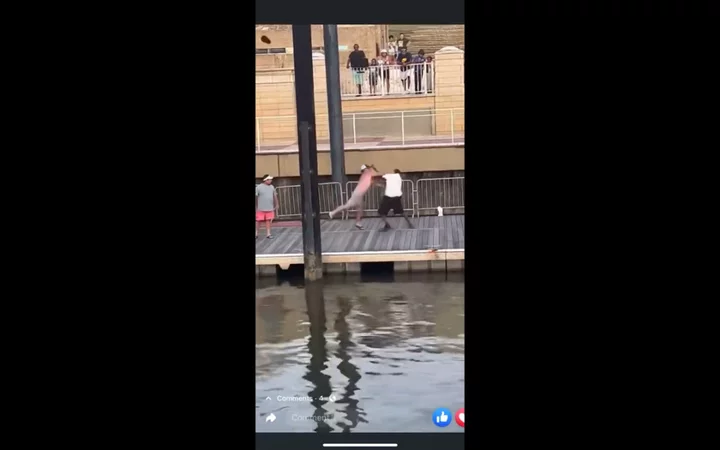
Black deckhand attacked in Alabama riverfront brawl reveals vile threats
A Black deckhand caught in the middle of the Alabama riverfront brawl revealed he was berated with threats by white boaters after he asked them to move their vessel so a dinner cruise could dock. Damien Pickett detailed the frightening moments in a written deposition to Montgomery police that was obtained by NBC News. The Harriott II’s senior deckhand said he had tried to reason with the pontoon boat occupants when he asked them to move, but was instead met with an attack that was captured on video. Mr Pickett recalled being pummeled by the boaters who yelled, “I’m gonna kill you, motherf*****, beat your ass, motherf*****.” “I can’t tell you how long it lasted,” he wrote in the deposition. “I grabbed one of them and just held on for dear life.” The Harriott II, which was carrying 227 passengers, had been trying to dock on Saturday evening in Montgomery but a pontoon boat was blocking their spot. After many calls over the PA system asking for the boat owners “five or six times” to move, Mr Pickett wrote, the men on the pontoon responded by “giving us the finger” for about three minutes. Mr Pickett said he and another dockhand then untied the pontoon boat and moved it “three steps to the right” and tied it back to a post so the Harriott II could dock. “By that time, two people ran up behind me,” Mr Pickett wrote. He added that one of the men, in a red hat, yelled to him, “Don’t touch that boat motherf***** or we will beat your ass.” “I told them, ‘No, you won’t,’” he continued, adding that the men kept threatening him, so he told them: “Do what you’ve got to do, I’m just doing my job.” Mr Pickett said the men appeared to be drunk and the boat’s owner, who was wearing a grey shirt and red shorts with a sun visor, “started getting loud … He got into my face. ‘This belongs to the f****** public.’ I told him this was a city dock.” The brawl broke out seconds later and Mr Pickett said that by that time, “a tall, older white guy came over and hit me in the face. I took my hat off and threw it in the air. Somebody hit me from behind. I started choking the older guy in front of me so he couldn’t anymore, pushing him back at the same time. “Then the guy in the red shorts came up and tackled me … I went to the ground. I think I hit one of them.” Finally, help had arrived, Mr Pickett said as he recounted a tall Black man and a security guard coming to his aid. “Two people were pulling them off me,” he said. But then before he knew it, “one of my co-workers had jumped into the water and was pushing people and fighting.” As the Harriott II finally docked, Mr Pickett’s said his nephew “ran off the boat and went after them. I was screaming for him to come back.” “The security guard was trying to get the lady in red to leave; she wouldn’t listen. People from off the boat and spectators were coming down the back end of the dock. The guy who started it all was choking my sister. I hit him, grabbed her and moved her … I turned around and MPD had a Taser in my face. I told him I was the one being attacked and could I finish doing my job.” Mr Pickett did just that as he helped passengers off the cruise boat and apologised to them “for the inconvenience. They all said I did nothing wrong,” he wrote. “Some of them were giving me cards with their names and numbers on it. Some said they had it all on film, so I pointed them out to MPD.” He was eventually transported to the hospital where he was treated for minor injuries. Five people have been arrested for their alleged involvement in the brawl. Reggie Gray, 42, turned himself in to Montgomery Police on Friday, three days after the police chief asked him to get in contact with authorities for further questioning. He was charged with disorderly conduct, police said. Mary Todd, 21, was charged with assault in the third degree. She is currently behind bars in the Municipal Jail, the police added. She joins three other men who were arrested following the wild riverfront fight. It’s unclear whether she and Allen Todd, a 23-year-old man who turned himself in on Wednesday, are related. Zachary Shipman, 25, also turned himself in on Wednesday night after police asked him and Mr Todd to turn themselves in no later than Tuesday. Richard Roberts, 48, was also held in custody in Selma as of Tuesday. Police have previously said that the three men who were arrested were members of the pontoon boat, which was blocking the Harriott II riverboat from docking in its designated space. It’s unclear if Ms Todd was also aboard the craft. The captain of the Harriott II said he believes this interaction was “racially motivated,” but the massive brawl that transpired afterwards was not. Capt Jim Kitrell also noted earlier this week that he has had “trouble” with the pontoon boat owners in the past, and had considered pressing charges against them years ago, yet was talked out of it. Read More Fourth suspect charged with assault in Alabama riverfront brawl as she turns herself in to police Alabama dockside brawl was racially motivated, riverboat captain says Alabama riverboat captain reveals past ‘trouble’ with pontoon boat owners after brawl
1970-01-01 08:00
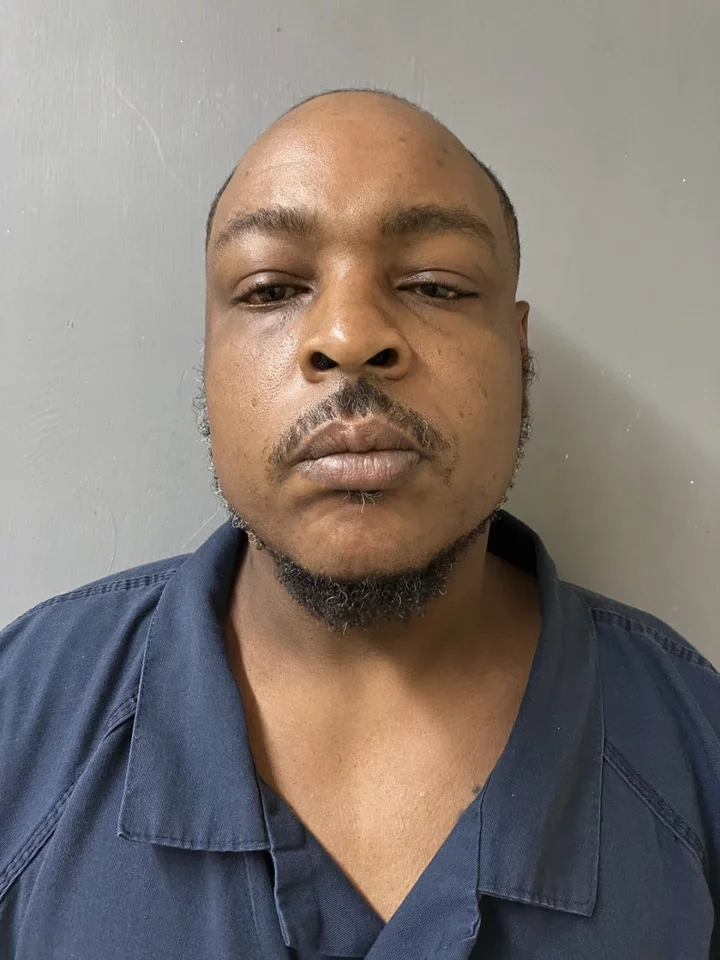
Fifth suspect charged in Montgomery riverfront brawl after turning himself in
A fifth suspect was charged following the violent Mongtomery riverfront brawl. Reggie Gray, 42, turned himself in to Montgomery Police on Friday, three days after the police chief asked him to get in contact with authorities for further questioning. He was charged with disorderly conduct, police said. Mr Gray is currently being housed in the Municipal Jail. The police chief previously described him as the man seen “wielding that folding chair” in footage of the incident. Mr Gray seemed to pick up a folding chair and whack people on the dock over the head with it, videos show. His arrest comes one day after 21-year-old Mary Todd turned herself in, and was charged with assault in the third degree. Before that, Richard Roberts, 48, Zachery Shipman, 25, and Allen Todd, were also charged for their alleged involvement in the fight on the dock. The fight broke out after the Harriott II riverboat was trying to park in its designated space, but a pontoon boat was blocking. After numerous attempts to get in contact with the pontoon boat owners over a PA system, senior deckhand Dameion Pickett approached them in person. Chaos ensued. One of the members of the pontoon boat began attacking Mr Pickett. Soon afterward, a massive fight broke out along the dock. Police said on Friday that the investigation is ongoing. Read More Alabama riverboat captain reveals past ‘trouble’ with pontoon boat owners after brawl Fourth suspect charged with assault in Alabama riverfront brawl as she turns herself in to police Alabama riverfront brawl suspects finally turn themselves in
1970-01-01 08:00
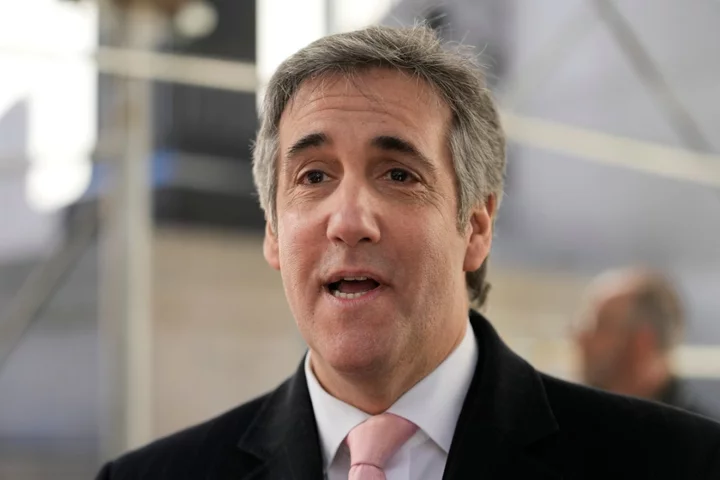
Trump’s former fixer Michael Cohen reveals he’s considering running for Congress
Michael Cohen, former President Donald Trump’s former attorney, is reportedly weighing a run for Congress. “I am interested and there’s a multitude of folks encouraging me to run,” the former president’s former fixer told Semafor. Mr Cohen told the outlet that he would run as a Democrat. “I’m still contemplating the run,” Mr Cohen confirmed to The Independent, but said he wouldn’t be divulging any further details, like a timeline or what would sway his decision one way or another, at this time. Mr Cohen told The Independent that he has been living in Manhattan since 1991. He lives on the East side of Manhattan, according to Semafor, meaning he would run against Rep Jerry Nadler in the 12th congressional district. Mr Nadler is the top Democrat on the House Judiciary Committee and has served in Congress since 1992. A potential congressional run for Mr Cohen would be particularly interesting during the next election cycle, as he is likely to be a key player in the Manhattan trial against Mr Trump involving hush money payments made to adult film star Stormy Daniels. Mr Cohen admitted to paying Ms Daniels hush money payments during Mr Trump’s 2016 campaign — after being directed by Mr Trump to do so. The former president was indicted in March by a grand jury and pleaded not guilty to 34 felony charges for falsification of business records. Mr Cohen has been an outspoken critic of Mr Trump in recent years, and the pair have been engaged in ongoing legal battles. Earlier this month, Mr Trump was called to sit for a September deposition as part of his $500m lawsuit against his former attorney, claiming that he has “suffered vast reputational harm as a direct result of Defendant’s breaches.” Last month, Mr Trump reached a settlement with Mr Cohen over $1.3m in unpaid legal bills. Read More All of Trump’s lawsuits and criminal charges and where they stand Michael Cohen claims Trump’s son-in-law Jared Kushner ‘probably a cooperating witness’ in probe Trump called for deposition in $500m lawsuit against Michael Cohen
1970-01-01 08:00

Texas Republicans invoke Noah’s Ark to defend Greg Abbott’s floating Rio Grande border wall in DoJ lawsuit
A group of Republican members of Congress are invoking Noah’s Ark and an obscure legal theory to defend Texas governor Greg Abbott’s controversial floating border wall in the Rio Grande, after the Justice Department sued the state and claimed the barrier violates federal law. On Wednesday, a delegation led by US Representative Jodey Arrington of Texas, alongside the Texas Public Policy Foundation, filed an amicus brief in federal court, arguing the Department of Justice is mistaken to argue that the 1,900-mile Rio Grande, the fourth largest river in North America, is a navigable waterway under the definition of federal regulations. The brief argues that an 1870 court case defines navigable waterways as those used in interstate or international commerce. “Indeed, if one takes the Book of Genesis literally, then the entire world was once navigable by boats large enough to carry significant amounts of livestock,” the brief reads. “Under the federal government’s theory, these anecdotes would render any structure built anywhere in Texas an obstruction to navigation subject to federal regulation.” Last month, echoing the arguments from Mr Abbott, Representative Arrington argued that Texas is under “invasion” by drug cartels, so the US Constitutional authorises emergency, military-style action like deploying national guardsmen and building border barriers without federal permission. “The sovereign states created the federal government,” he said, “not the other way around. When the states entered into that social contract of the Constitution of the United States, they may have ceded some of their authority to the central government but they didn’t surrender their sovereignty.” Legal experts told The Independent that this interpretation of the Constitution’s “Invasion Clause” is mistaken and has previously been struck down in federal immigration cases. Last month, the Biden administration sued Governor Abbott, arguing his plan to install thousands of feet of saw-tipped border barriers in the middle of the Rio Grande violating the federal Rivers and Harbors Act by failing to seek permission to build from the US Army Corps of Engineers. The river barrier is also facing a state lawsuit from a river guide named Jessie Fuentes. “You’ve taken a beautiful waterway and you’ve converted it into a war zone,” he told The Independentlast month. Other Texas members of Congress have criticised the border barriers, arguing they are putting already vulnerable migrants at greater risk of death or serious injury. “Today was eye-opening,” Rep Sylvia Garcia of Texas wrote on X this week during a border visit, sharing a video of the orange buoys used in the Rio Grande which are separated with blade saw-like barbed disks. “Seeing the barbaric, inhumane, and ungodly practices in my home state of Texas. This is beyond politics and crosses a line into human rights violations.” Read More Greg Abbott slammed by Texas lawmakers for ‘cruel’ floating border barriers with ‘chainsaw devices’ How governor Greg Abbott is using an obscure ‘invasion’ legal theory for a border power grab in Texas Buoys, razor wire, and a Trump-y wall: How Greg Abbott turned the Rio Grande into an immigration ‘war zone’ Up-close look at buoys with saw-like barbed metal used in Rio Grande Greg Abbott slammed for ‘cruel’ floating border barriers with ‘chainsaw devices’ Texas separates migrant families, detaining fathers on trespassing charges in latest border move
1970-01-01 08:00

How a vote to empower autonomous ‘robotaxis’ from Cruise and Waymo has divided San Francisco
The future was waiting outside my door, and it was an electric taxi named Saxophone. On Wednesday, 9 August, on the eve of a much-watched vote to expand the footprint of autonomous vehicles (AV) in San Francisco, I summoned a driverless taxi from the company Cruise for a test drive. The Cruise AVs, which began operating paid, Uber-like on-demand rides in June of 2022, are a frequent sight in my San Francisco neighbourhood, The Richmond. And they’re about to get even more ubiquitous: on Thursday evening, following a marathon seven-hour public comment session, the California Public Utilities Commission (CPUC) voted 3-1 to allow Cruise and Google parent company Alphabet’s Waymo venture to run paid rides, without a safety driver in the cabin, 24/7 on San Francisco streets. Much like the members of the public who turned out in droves to comment on the vote, I have mixed feelings about autonomous vehicles. I’ve been trailed, somewhat ominously, on backstreets by a Cruise AV as I rode my bike, with the robo-driver declining to pass me like most human pilots would. I’ve seen a homeless man approach the window of a robotaxi to ask for change, only to find no one inside, a metaphor of San Francisco inequality a bit too on the nose even for a writer like me. I decided, for the time being, to leave the public debating to the local officials and longtime San Francisco residents and start with the basics: what was it like to ride in one of these things? For a 0.8 mile, one-way ride to the local grocery store, I was charged $8.26, about a dollar per minute of driving time. The ride was smooth, though the Cruise AV would occasionally move in a way that was, while perfectly safe, not quite human, gliding without hesitation within inches of a parked SUV’s bike rack, hesitating ever-so-slightly within the normally smooth arc of a turn, accelerating with an almost imperceptible stutter after it dropped me off. Still, I was lucky. Earlier this month, an NBC reporter taking a test drive was stuck inside a Cruise that mysteriously stalled, then blocked two lanes of traffic as it idled at a 45 degree angle against the median. After I got home, driven by “Flora,” I looked it up and the price of my roundtrip was virtually identical to that of an Uber. I sat there thinking about the strange economics of 2023 San Francisco, where the product of billions of dollars of investment had delivered a service that was both an incredible technical leap, the stuff of the Jetsons, that also offered me no financial advantage, snatched a job from a rideshare driver, and took me on a round trip that would’ve been 15 minutes faster – and free – on a rusty old bike. The future had arrived, but was it one that I, or San Francisco, really wanted, let alone needed? Wednesday’s vote exposed how deeply divisive such technologies are in San Francisco, and the thorny considerations inherent in any attempt to carry out large-scale changes to the transit system. Human drivers are unsafe death machines themselves, killing thousands of people each year. And the need for green mass transit has never been higher. But are autonomous vehicles the best solution? The companies, at least, celebrated the decision as heralding a moment of great progress. “Offering a commercial, 24/7 driverless ridehail service across San Francisco is a historic industry milestone – putting Cruise in a position to compete with traditional ridehail, and challenge an unsafe, inaccessible transportation status quo,” Prashanthi Raman of Cruise said in a statement to The Independent. It was indeed major victory for the industry, though regulators warn there’s still much work to be done before autonomous vehicles flood the roads. “The conversation on how best to integrate AVs into our community is far from over,” said CPUC president Alice Busching Reynolds, who voted for the expansion. One commissioner, Genevieve Shiroma, wasn’t yet convinced, and argued the industry hasn’t given good enough data and has been too quick to brush off reports of driverless vehicles behaving strangely around first responders. “Imagine if one of those so-called anecdotes involved a member of your family in need of urgent medical attention, or was trapped in a burning building,” she said, adding, “All it takes is one real-life example.” Outside of the Public Utilities Commission building, protesters rallied and drew messages like ‘people not profits’ in chalk on the sidewalk, as AV company employees showed out in matching t-shirts. Inside, commissioners heard a mosaic of different opinions. “We are in desperate need of people coming to San Francisco,” Matthew Sutter, who has been driving a taxi cab for 31 years, told the commission. “You’re going to take away jobs with this thing.” Meanwhile, a man named Michael Martinez said expanding Cruise and Waymo’s footprint in San Francisco would mean the city, already one of the most expensive and unequal places to live in America, was “pimped out by yet another couple of large tech companies so that all their employees here wearing yellow shirts might get to cash out their stock options.” Numerous advocates pointed out how driverless cars could discriminate against disabled people, given that they sometimes drop people a few doors down from their chosen destination, and they don’t have drivers who are able to help people with wheelchairs or other mobility aides enter and exit a vehicle. A taxi driver can help someone carry their groceries to a front door, but an AV can only go from place to place. Others argued the technologies would in fact help disabled people, overcoming the “last mile problem” of public transit, when passengers aren’t able to get all the way to their destination, and that AVs would limit dangerous human errors like distracted driving. “Too often, patients don’t make it to my operating room because they have been killed by distracted drivers or road rage,” an orthopedic surgeon testified. A representative for Mothers Against Drunk Driving said Cruise and Waymo could be a “pillar” of stopping the “100 per cent preventable crimes” of drunk driving deaths. Robotaxis began operating paid taxi services in San Francisco in June of 2022, and since then, hundreds of Cruise and Waymo vehicles have filled the streets. The city, synonymous with Silicon Valley technology and innovation, is seen as the most important test yet of AV technology, a high-profile audition for a future of mass, autonomous transit. “Operating robotaxis in SF has become a litmus test for business viability,” Cruise CEO Kyle Vogt wrote on X in April. “If it can work here, there’s little doubt it can work just about everywhere.” So far, the experience has been mixed, with a fleet of up to 400 autonomous taxis carrying out thousands of successful rides – and enraging some local residents and city officials, who say the robotaxis carry out bizarre and unsafe behaviour on a regular basis with little accountability. On 21 January, San Francisco firefighters were battling a blaze on Hayes Street when they saw a driverless taxi from Cruise gliding towards them. The Cruise vehicle, a modified electric Chevrolet Bolt, was heading straight for their hoses. The firefighters made attempts to stop the vehicle, but couldn’t. First responders were only able to halt the car once they shattered its window, according to a letter from city officials. Local transit activists say Cruise and Waymo vehicles can be seen creeping creepily towards pedestrians on sidewalks, blocking buses, and getting in the way of first responders. “I’ve seen them not totally stop at a stop sign,” an activist with the local transit group Safe Street Rebel, who asked to remain anonymous, told The Independent. “I’ve seen them get too close to pedestrians. I personally have felt very unsafe crossing the road whenever there is one stopped. I see them stalled on the streets, too. I just saw that the other day one stalled, blocking an emergency vehicle. This is something that they just do on their own.” The group has carried “cone-ing” protests, placing traffic cones on top of empty AVs to temporarily stall them. According to data Cruise shared with CPUC earlier this week, between January and mid-July of 2023, Cruise AVs temporarily malfunctioned or shut down 177 times and required recovery, 26 of which such incidents occurred with a passenger inside, while Waymo recorded 58 such events in a similar time frame. Meanwhile, according to the San Francisco Municipal Transit Agency (SFMTA), between April 2022 and April 2023, Cruise and Waymo vehicles have been involved in over 300 incidents of irregular driving including unexpected stops and collisions, while the San Francisco Fire Department says AVs have interfered 55 times in their work in 2023. Last year, Cruise lost contact with its entire fleet for 20 minutes according to internal documentation viewed by WIRED, and an anonymous employee warned California regulators that year the company loses touch with its vehicles “with regularity.” (The company said at the time Cruise cabs have “fallback” systems directing them to turn on their hazard lights and pull over in the face of such problems.) Since being rolled out in San Francisco, robotaxis have killed a dog, caused a mile-long traffic jam during rush hour, blocked a traffic lane as officials responded to a shooting, and driven over fire hoses. Jeffrey Tumlin, San Francisco’s director of transportation, has called the rollout of robotaxis a “race to the bottom,” arguing Cruise and Waymo weren’t yet definitive transit solutions, and instead had only “met the requirements for a learner’s permit.” "The biggest concern is that someone is going to get really severely injured or killed because we cannot properly respond to an incident," San Francisco fire chief Jeanine Nicholson said in June. "Or if they can get in the way at an incident. We’ve really gotten lucky so far, but it’s only a matter of time before something really, really catastrophic happens." “We have 160,000 calls a year. We don’t have the time to personally take care of a car that’s in the way when we’re on the way to an emergency,” she added. Others worry the AV technology will cause another shock to workers in the city, displacing more transit jobs that were already turned upside-down or eliminated with the arrival of Uber and Lyft. “We’re already seeing it,” Jose Gazo, an Uber driver, told The San Francisco Standard in July. “With business going like this, we’re going to go homeless.” Not that taxis were a particularly worker-friendly technology in San Francisco, either. In 2010, the city began auctioning off driver medallions for $250,000 a piece. Declining taxi revenues, combined with a sky high cost of living, has left many San Francisco taxi drivers barely making survival wages in order to pay off debts on their cabs, even as the future of this investment looks increasingly doubtful. The autonomous vehicle companies insist that human drivers are the real risk. Car crashes are a leading cause of death in the US, according to the CDC, and Cruise and Waymo point to the fact that their AVs haven’t been involved in a single fatal accident in San Francisco. (Such deaths have occured in the US, though; an Uber self-driving vehicle with a backup driver was involved in a 2018 accident in Arizona that killed a pedestrian.) “Autonomous vehicles don’t get drunk or drowsy. They don’t text at the wheel,” Waymo co-CEO Tekedra Mawakana wrote in a July column in the San Francisco Chronicle. “We want our vehicles to improve road safety and to contribute to the city’s economic recovery and its Vision Zero goal of no street fatalities.” However, unlike their fleshy, distractable human cousins, police cannot cite autonomously driven cars for common moving violations like reckless driving or speeding. “The data to date indicates the Waymo Driver is reducing traffic injuries and fatalities in the places where we operate,” the company told The Independent in a statement. “In particular, in a million miles of fully autonomous operations, we had no collisions involving pedestrians or cyclists, and every vehicle-to-vehicle collision involved rule violations or dangerous behavior on the part of the human drivers.” “2022 was the worst year for traffic deaths in San Francisco in nearly a decade,” it added. “Waymo’s mission is to improve road safety and mobility for everyone.” Some city officials, meanwhile, say the companies are attempting to sell a safety record that hasn’t been fully open to public scrutiny, with the companies allegedly declining to share full data or giving city officials redacted reports. “Given that we do not have actual data, what we have is information from reports that have been made by members of the public, by city employees, by firefighters, by transit operators,” Julia Friedlander, senior manager of automated driving policy at the SFMTA, said at a Monday CPUC meeting. “And what we have seen is that things are not getting better. The monthly rate of incidents has been growing significantly over the course of 2023. You’ll see that June was the month with the highest number of incidents of all kinds.” The companies also argue AVs are a green solution. Cruise wrote in a 2022 blog post that “of the nearly 900,000 autonomous miles Cruise drove in 2021, not one added to CO2 emissions, and all were powered by 100% renewable energy.” Some, however, are sceptical of this claim, noting that any transit method that encourages individual car use over low-cost, mass public transit is inherently inferior. “This just adds more cars onto the road. It diverts our attention and financial investment and even legislative action to invest in public transit. It puts more cars on the road,” the Safe Street Rebel activist told The Independent. “We’re big fans of technology that actually benefits people,” she added. “Trying to graft unreliable technology onto a wasteful, dangerous, inefficient mode of transport is hardly looking to the future.” Read More Is this $6.6 billion flying car startup the future of green transit, or just another rich guy fantasy? Recalling a wild ride with a robotaxi named Peaches as regulators mull San Francisco expansion plan Waymo self-driving car kills a dog in San Francisco Summer camp in California gives Jewish children of color a haven to be different together Investigators say miscommunication between pilots caused United plane to drop near ocean's surface 2 robotaxi services seeking to bypass safety concerns and expand in San Francisco face pivotal vote
1970-01-01 08:00

Niger coup: Russia warns Ecowas not to take military action
Protesters gather in Niamey after a West African bloc approve intervention against coup leaders.
1970-01-01 08:00

Argentines to vote in a primary election that's expected to set the stage for a rightward shift
Argentina's national primary election Sunday won’t just help determine which candidates will be running in the country's October presidential vote, but could impact the economy even before then. A strong showing by the opposition coalition would be cheered by markets in an election that will also test the national appeal of an eccentric right-wing anti-establishment candidate who is an admirer of former President Donald Trump. The primary is seen as a thermometer of voter preference ahead of the Oct. 6 election, which is expected to shift Argentina to the right with the current left-leaning government bottoming out in the polls amid rising poverty, a rapidly depreciating currency and galloping annual inflation that tops 100%. Sunday’s primary officially serves two purposes: determine the candidates that will run in the October election and weed out any candidates who don’t receive at least 1.5% of the vote. But it also serves as a massive, nationwide opinion poll in a country where pre-election polls have been notoriously wrong in the past. The primary can have an economic impact. Four years ago, an unexpectedly strong showing by now-President Alberto Fernández led to a sharp depreciation of the currency as markets saw the primary results indicating that business-friendly President Mauricio Macri was on his way out. The local currency, the Argentine peso, has seen its value plunge in parallel markets ahead of Sunday’s vote. Stringent capital controls mean that access to the official foreign exchange market is extremely limited, so parallel rates have flourished. Economists will be watching to see signs that the main center-right opposition could win the presidential election outright and avoid a second round runoff in November. “There is enthusiasm, especially outside of Argentina, about a profound regime change, but without going to the opposite extreme,” said Mariano Machado, principal analyst for the Americas at Verisk Maplecroft, a global risk intelligence firm. The wildcard of the race is upstart populist candidate Javier Milei, who has gained popularity thanks to his angry screeds against the ruling class and has found followers among those who are tired of politics as usual. His unorthodox proposals that include dollarizing the economy and getting rid of the Central Bank have found particular backing among the young. “We’re fed up with the status quo, with the same old thing, with the same last names that are on the ballot, we want to change things up a bit, and give an opportunity to someone who nobody knows if he will do well, but we’re going to give him a chance,” Efraín Viveros, a 20-year-old nursing student said Monday at Milei’s closing campaign rally in Buenos Aires. A strong showing for the main center-right coalition could buoy the market, but a stronger-than-expected showing for Milei would likely send the local currency, the peso, tumbling and cause general disarray in the markets due to uncertainty over his policies. The main presidential contenders all represent a rightward shift away from Fernández, who is not seeking reelection and has been largely absent from the campaign. Also largely absent has been his vice president, Cristina Fernández, who was the country’s president from 2007 to 2015. In the currently ruling coalition, Union for the Homeland, there is little doubt that Economy Minister Sergio Massa, a market-friendly politician, will receive the nomination although he is facing a challenge from a leftist candidate, Juan Grabois. A key contest Sunday will play out in the center-right United for Change opposition coalition with Buenos Aires Mayor Horacio Rodríguez Larreta facing off against former Security Minister Patricia Bullrich to determine who will be its candidate. Pollsters say the winner of this race will have a strong chance of becoming president. Regardless of who comes out on top, analysts will be watching closely whether a strong showing by the opposition could suggest an outright victory in October without a runoff. “While we expect a volatile political transition given macroeconomic woes, the (primaries) outcome could improve market sentiment, supported by a likely policy shift next year,” said the Institute of International Finance, a Washington-based association of the financial services industry, in a recent report. Milei was the only major candidate who held his final campaign rally. Other called off what were supposed to be their final events before the vote following the killing of an 11-year-old girl during a snatch-and-grab robbery Wednesday. The death of Morena Domínguez in an attack by two motorcycle-riding thieves in the Buenos Aires province district of Lanús, left the country reeling and put crime at the forefront of a campaign that had been dominated by economic issues. Also likely to impact the final days before the vote was the Thursday death of a leftist political activist, who suffered a heart attack while being detained by police during a protest in downtown Buenos Aires. Besides presidential voting in October, about half of Argentina’s lower house of Congress and one-third of the Senate will be up for grabs. Voting is mandatory in Argentina but the fine for failing to cast a ballot is largely symbolic. Recent national elections have seen a participation rate of around 70%. ——— Associated Press journalists Débora Rey and Almudena Calatrava contributed to this report. Read More Ukraine war’s heaviest fight rages in east - follow live Charity boss speaks out over ‘traumatic’ encounter with royal aide They lost everything in the Paradise fire. Now they're reliving their grief as fires rage in Hawaii Doctors in England walk off job again as pay dispute with UK government shows no progress Italy gets back 266 antiquities from New York seizures and Houston museum
1970-01-01 08:00

Prosecutor in Hunter Biden case is given special counsel status by attorney general
Attorney General Merrick Garland announced that he granted the US attorney investigating President Joe Biden’s son Hunter Biden special counsel status. Mr Garland announced that David Weiss, who has served as the US Attorney for Delaware since 2018, would serve as special counsel and he had informed relevant members of Congress about the nomination. The move is a shift from July when Mr Weiss informed Congress that he had not requested special counsel designation for his investigation into the president’s son. But on Tuesday, Mr Weiss requested such status. “I have concluded that it is in the public interest to appoint him as special counsel,” Mr Garland said on Friday. “This appointment confirms my commitment to provide Mr. Weiss all the resources he request.” Mr Weiss had previously been investigating Hunter Biden since 2019. Mr Garland and the Department of Justice allowed Mr Weiss to stay on board as US attorney when Mr Biden took office in 2021 to continue his investigation of Mr Biden. In July, Mr Biden looked set to enter into a plea deal for unpaid taxes and lying on a federal application for a firearm. Republicans, including former president Donald Trump, had decried the agreement as a sweetheart deal. Many Republicans argued that the younger Mr Biden received preferential treatment because he is the president’s son despite the fact that Mr Trump nominated Mr Weiss and Republicans in the Senate voted to confirm him in 2018. Then in late July, Mr Biden pleaded not guilty to two of the charges after the presiding judge questioned whether the deal would prohibit the federal government from prosecuting him for other crimes he might have committed in the future. The White House referred to remarks from Mr Garland and the Justice Department when asked by The Independent. Mr Garland said that Mr Weiss’s office would not be subjected to day-to-day supervision but would have to comply with regulations, procedures and policies of the Justice Department. Mr Weiss would also be mandated to write a report of his investigation once it concludes. “ As with each special counsel who has served since I have taken office, I am committed to making as much of his report public as possible, consistent with legal requirements and department policy,” he said. “Today's announcement affords the prosecutors agents and analysts working on this matter, the ability to proceed with our work expeditiously and to make decisions indisputably guided only by the facts and the law.” Mr Garland’s announcement comes the same day that former president Donald Trump’s legal team appeared in court in Washington, DC and earned a win as US District Judge Tanya Chutkan ruled that a protective order against Mr Trump would only apply to sensitive material such as jury transcripts, witness interview records and other documents. Mr Trump faces charges for his attempts to overturn the 2020 presidential election after a federal grand jury indicted him in response to a presentation from Special Counsel Jack Smith’s office. Mr Garland nominated Mr Smith to investigate Mr Smith to investigate Mr Trump. In addition, the attorney nominated Robert Hur to investigate classified documents found in locations associated with President Biden earlier this year. Read More Hunter Biden’s plea deal appears at risk of falling apart. What happens next? Hunter Biden pleads not guilty to two tax charges after court chaos around deal with prosecutors Attorney General Garland will appoint special counsel in Hunter Biden probe Utah man killed after threats against Biden believed government was corrupt and overreaching Utah man suspected of threatening President Joe Biden shot and killed as FBI served warrant
1970-01-01 08:00
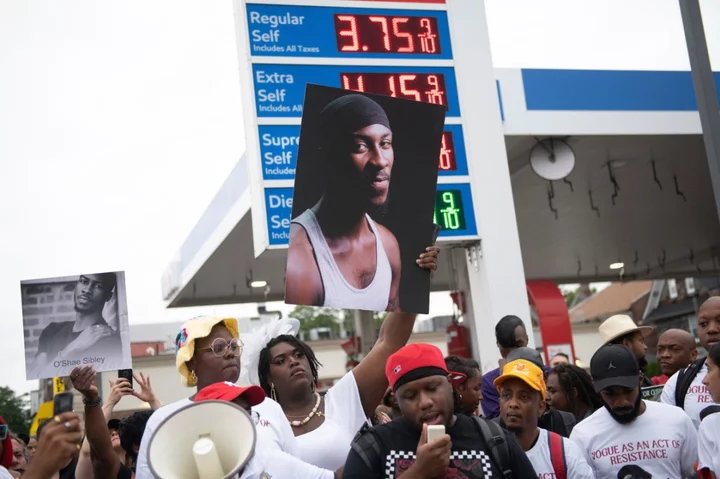
Teen accused of fatally stabbing O’Shae Sibley pleads not guilty to murder as a hate crime
The 17-year-old boy charged with stabbing O’Shae Sibley to death at a gas station in Brooklyn has pleaded not guilty at his arraignment. Dmitriy Popov was previously indicted by a grand jury on murder in the second degree as a hate crime, among other charges. Mr Popov’s next court date is set for October, ABC 7 reported, adding that the teen faces a minimum of 20 years in jail and a maximum of 25 years to life. The outlet reported that Brooklyn District Attorney Eric Gonzalez underscored the importance of prosecuting this incident as a hate crime. “Many powerful people across this country have talked about this case and have been concerned that justice prevails,” said Mr Gonzalez. “I’m assuring the community that we are taking this case very seriously, that we’re going to make sure that justice prevails.” The 17-year-old is accused of killing Sibley, a gay 28-year-old professional dancer, who, reportedly just after 11pm on 29 July, was dancing to a Beyonce song with a friend at a Mobil gas station in Brooklyn. That’s when a separate group of young men allegedly began hurling homophobic insults saying that they didn’t like “gay dancing” in their neighbourhood, according to eyewitnesses. Sibley suffered “a stab wound to the torso. EMS responded and removed the victim to Maimonides Medical Center, where he was pronounced deceased,” a spokesperson for NYPD said. Mr Popov’s lawyer Mark Pollard previously told The Independent that his client was a “good Christian boy” who regularly attended church. “I have no idea where that came from. I just know he’s not Muslim. It’s very strange,” Mr Pollard told The Independent. The teenage suspect turned himself in to authorities after a week of trying to bring him in, although he was easily identified through video footage. “This is a city where you are free to express yourself, and that expression should never end with any form of violence,” Mayor Eric Adams said at a press conference last week. Read More 17-year-old suspect in the New York stabbing of a dancer is indicted on a hate-crime murder charge O’Shae Sibley was stabbed to death for the crime of being ‘Black, gay and dancing’ Teen accused of stabbing O’Shae Sibley in homophobic attack is a ‘good Christian boy’, lawyer says
1970-01-01 08:00

Trump gets a win in 2020 election case protective order battle as judge rules he can share some evidence
Donald Trump notched a win in the fight over a protective order in the 2020 election case as the judge ruled that some of the evidence that will be provided to him in the pre-trial discovery process won’t be restricted from dissemination if it’s not deemed “sensitive” by the government. US District Judge Tanya Chutkan on Friday that the protective order will only apply to sensitive materials such as grand jury transcripts, witness interview records, and other documents that could identify witnesses or be used to poison the pool of potential jurors who will be responsible for deciding the ex-president’s fate when he goes on trial next year. Special Counsel Jack Smith’s office had asked her to impose a more restrictive order which would have applied to any and all materials provided to Mr Trump’s defence team in discovery, while Mr Trump’s attorneys had asked for her to allow the former president leave to talk about non-sensitive materials, citing his ongoing campaign for the Republican nomination in next year’s presidential election. Prosecutors had made the request for a broad protective order with the aim of preventing Mr Trump from poisoning the jury pool ahead of his expected trial next year, citing statements by the ex-president’s legal team which they said indicated a desire to try the case “in the press”. But Judge Chutkan, a former defence attorney and a nine-year veteran of the federal bench who was nominated by then-president Barack Obama and confirmed by a unanimous Senate vote in 2014, rejected the prosecution’s preferred language on the grounds that Mr Trump’s conduct with regard to the non-sensitive discovery is still governed by his release conditions and the rules of the court. More follows...
1970-01-01 08:00
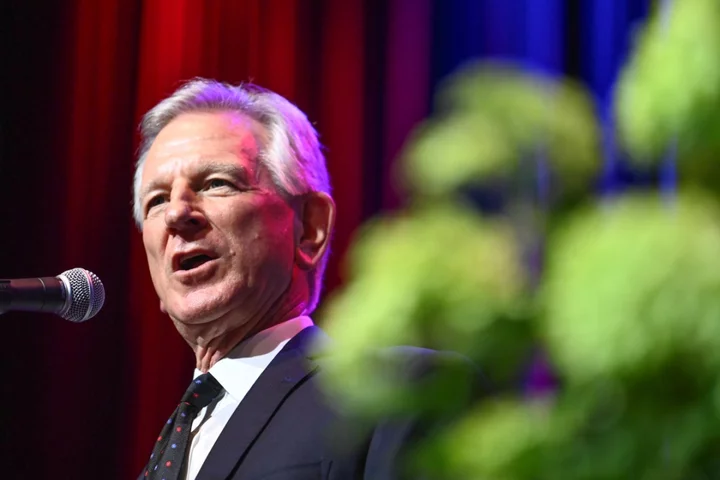
Alabama Senator Tommy Tuberville no longer owns property in the state he represents, report says
Alabama Republican SenatorTommy Tuberville no longer possesses any property in the state he represents, according to a report. The Washington Post reported that the lawmaker has sold the last of his properties in Alabama – Tiger Farms LLC, which sits in Macon and Tallapoosa counties just outside of Auburn – for just over $1m. Property records show that he has owned a $3m home in Santa Rosa Beach, Florida, for around 20 years. He also owns a condo in Washington that he and his wife purchased for $750,000 in 2021. The former Auburn University head coach recently sold one Florida condo for $850,000 and bought another for $825,000, the Post reported. The Independent has reached out to Mr Tuberville’s office for comment. Mr Tuberville’s office maintained to the Post that the senator’s primary residence is a home in Auburn. “Coach has purchased and invested in real estate for decades,” Mr Tuberville’s communications director told the outlet. “Coach has owned the property in Santa Rosa Beach for two decades – he bought it while he was coaching at Auburn. He goes there upon occasion if he has a free weekend. It is within driving distance of Auburn. I’m sure many senators have vacation homes.” The spokesperson said that the senator purchased his current Auburn residence for his son when his son was a student at Auburn. “After his son graduated, he moved out. After Coach retired from coaching, Coach moved into the Auburn house.” Despite this claim, the Tubervilles actually bought the house nine months after his son Tucker graduated from Auburn University in 2016, according to his LinkedIn profile. When Mr Tuberville served as the head coach of University of Cincinnati’s football team from 2013 through 2016, Tucker then worked for his father at the school from May through December 2016 after he graduated. Tuberville’s other son, Troy, did not start at Auburn until 2018 and graduated in 2021. After being presented with these details, Mr Tuberville’s communications director backtracked and told the Post that the house was purchased after Tucker graduated from college: “His son lived at the Auburn house briefly and then Coach moved there afterward.” “The Auburn property is his primary residence — although his job requires him to be in Washington four days a week when the Senate is in session,” the communications director added. Under the US constitution, a senator must live in the state they are elected to serve. “No Person shall be a Senator…who shall not, when elected, be an Inhabitant of that State for which he shall be chosen,” it states. Mr Tuberville isn’t the only member of Congress to face questions around their residency. Arizona Democratic Rep Ruben Gallego was under fire earlier this year after Politico exposed that he claimed both his DC property and his Arizona property as his primary residence. Similarly, Rep Ryan Zinke, the former Trump administration interior secretary, fell under scrutiny when he ran for congress in Montana in 2022 and his wife put her primary residence as California. Read More GOP senator holding up military promotions claims Ukraine ‘can’t win’ in war with Russia Pentagon warns of disruptions as Army, Marines both lack confirmed leaders for first time Manchin, Tuberville introduce college sports bill to standardize NIL rules, regulate collectives Pentagon warns of disruptions as Army, Marines both lack confirmed leaders for first time Who are Trump’s six alleged co-conspirators in the 2020 election probe case? Biden rejects Trump decision to move Space Force from Colorado to Alabama
1970-01-01 08:00
